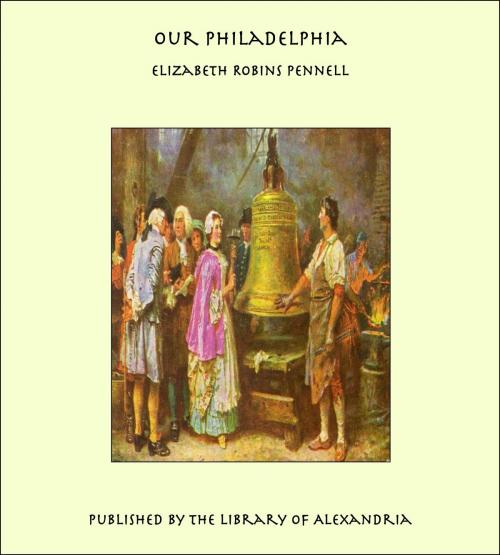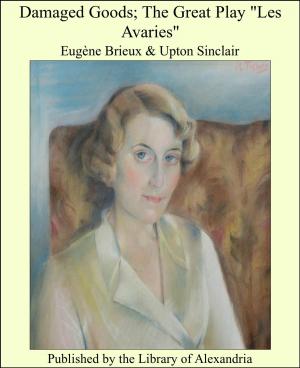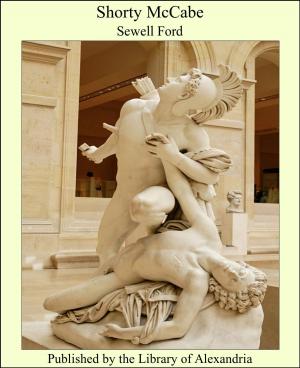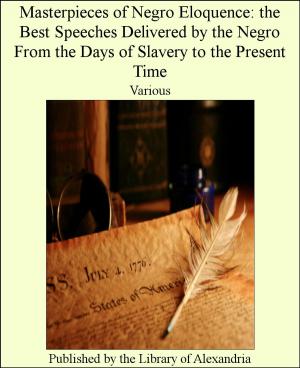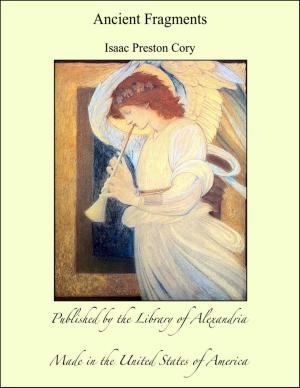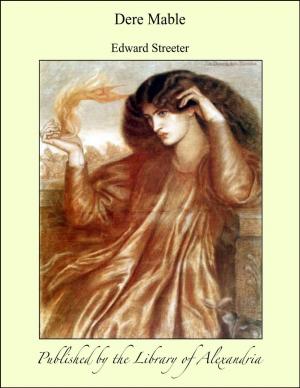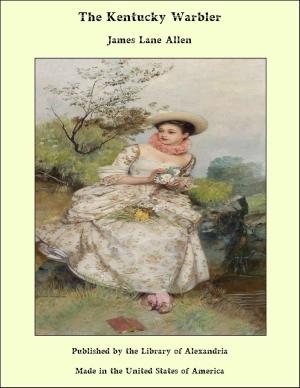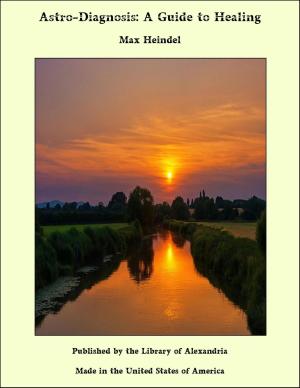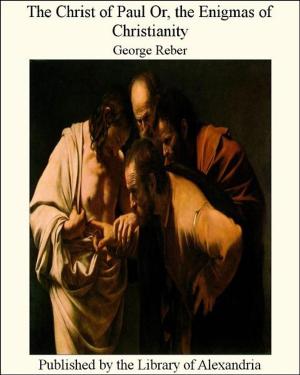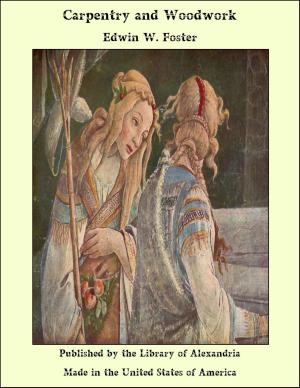| Author: | Elizabeth Robins Pennell | ISBN: | 9781465544094 |
| Publisher: | Library of Alexandria | Publication: | March 8, 2015 |
| Imprint: | Language: | English |
| Author: | Elizabeth Robins Pennell |
| ISBN: | 9781465544094 |
| Publisher: | Library of Alexandria |
| Publication: | March 8, 2015 |
| Imprint: | |
| Language: | English |
AN EXPLANATION I think I have a right to call myself a Philadelphian, though I am not sure if Philadelphia is of the same opinion. I was born in Philadelphia, as my Father was before me, but my ancestors, having had the sense to emigrate to America in time to make me as American as an American can be, were then so inconsiderate as to waste a couple of centuries in Virginia and Maryland, and my Grandfather was the first of the family to settle in a town where it is important, if you belong at all, to have belonged from the beginning. However, J.'s ancestors, with greater wisdom, became at the earliest available moment not only Philadelphians, but Philadelphia Friends, and how very much more that means Philadelphians know without my telling them. And so, as he does belong from the beginning and as I would have belonged had I had my choice, for I would rather be a Philadelphian than any other sort of American. I do not see why I cannot call myself one despite the blunder of my forefathers in so long calling themselves something else. I might hope that my affection alone for Philadelphia would give me the right, were I not Philadelphian enough to know that Philadelphia is, as it always was and always will be, cheerfully indifferent to whatever love its citizens may have to offer it. I can hardly suppose my claim for gratitude greater than that of its Founder or the long succession of Philadelphians between his time and mine who have loved it and been snubbed or bullied in return. Indeed, in the face of this Philadelphia indifference, my affection seems so superfluous that I often wonder why it should be so strong. But wise or foolish, there it is, strengthening with the years whether I will or no,—a deeper rooted sentiment than I thought I was capable of for the town with which the happiest memories of my childhood are associated, where the first irresponsible days of my youth were spent, which never ceased to be home to me during the more than a quarter of a century I lived away from it. DELANCEY PLACE Besides, Philadelphia attracts me apart from what it may stand for in memory or from the charm sentiment may lend to it. I love its beauty—the beauty of tranquil streets, of red brick houses with white marble steps, of pleasant green shade, of that peaceful look of the past Philadelphians cross the ocean to rave over in the little old dead towns of England and Holland—a beauty that is now fast disappearing. I love its character—the calm, the dignity, the reticence with which it has kept up through the centuries with the American pace, the airs of a demure country village with which it has done the work and earned the money of a big bustling town, the cloistered seclusion with which it enjoys its luxury and hides its palaces behind its plain brick fronts—a character that also is fast going. I love its history, though I am no historian, for the little I know colours its beauty and accounts for its character
AN EXPLANATION I think I have a right to call myself a Philadelphian, though I am not sure if Philadelphia is of the same opinion. I was born in Philadelphia, as my Father was before me, but my ancestors, having had the sense to emigrate to America in time to make me as American as an American can be, were then so inconsiderate as to waste a couple of centuries in Virginia and Maryland, and my Grandfather was the first of the family to settle in a town where it is important, if you belong at all, to have belonged from the beginning. However, J.'s ancestors, with greater wisdom, became at the earliest available moment not only Philadelphians, but Philadelphia Friends, and how very much more that means Philadelphians know without my telling them. And so, as he does belong from the beginning and as I would have belonged had I had my choice, for I would rather be a Philadelphian than any other sort of American. I do not see why I cannot call myself one despite the blunder of my forefathers in so long calling themselves something else. I might hope that my affection alone for Philadelphia would give me the right, were I not Philadelphian enough to know that Philadelphia is, as it always was and always will be, cheerfully indifferent to whatever love its citizens may have to offer it. I can hardly suppose my claim for gratitude greater than that of its Founder or the long succession of Philadelphians between his time and mine who have loved it and been snubbed or bullied in return. Indeed, in the face of this Philadelphia indifference, my affection seems so superfluous that I often wonder why it should be so strong. But wise or foolish, there it is, strengthening with the years whether I will or no,—a deeper rooted sentiment than I thought I was capable of for the town with which the happiest memories of my childhood are associated, where the first irresponsible days of my youth were spent, which never ceased to be home to me during the more than a quarter of a century I lived away from it. DELANCEY PLACE Besides, Philadelphia attracts me apart from what it may stand for in memory or from the charm sentiment may lend to it. I love its beauty—the beauty of tranquil streets, of red brick houses with white marble steps, of pleasant green shade, of that peaceful look of the past Philadelphians cross the ocean to rave over in the little old dead towns of England and Holland—a beauty that is now fast disappearing. I love its character—the calm, the dignity, the reticence with which it has kept up through the centuries with the American pace, the airs of a demure country village with which it has done the work and earned the money of a big bustling town, the cloistered seclusion with which it enjoys its luxury and hides its palaces behind its plain brick fronts—a character that also is fast going. I love its history, though I am no historian, for the little I know colours its beauty and accounts for its character
